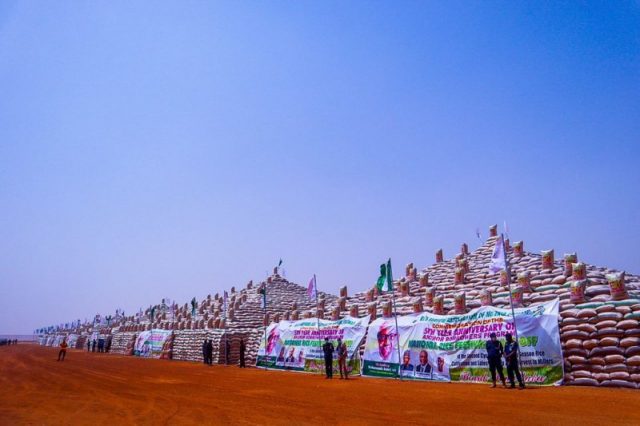MON 14 MARCH, 2022-theGBJournal| The War between Ukraine and Russia will likely make the world’s hunger crisis even tougher to fight says the Lagos Chamber of Commerce & Industry (LCCI).
‘’ The countries are two of the world’s major suppliers of staple grains like wheat. A protracted crisis increases the likelihood of supply interruptions and higher food prices for many people, including those who can least afford them,’’ the LCCI said.
It noted that Nigeria’s food supply will surely come under some pressure as it imported 4% of wheat from Ukraine and 27% of wheat from Russia in 2021 according to Gallup News.
Data from the National Bureau of Statistics shows that Russia was the sixth major exporter to Nigeria as of the third quarter of 2021 coming only after China, India, USA, Netherlands, and Belgium in that order.
It is unclear how long the current disruptions in the food supply chain will last, even though it has already triggered higher wheat prices around the world. In developing economies including Nigeria, where populations already struggle to afford food, disruptions to food supply may result in substantial additional hardship and instability.
Disruption of Ukrainian wheat supplies may prove doubly painful for countries already squeezed by food insecurity and rising food prices as we have in Nigeria. Ukraine was the second-largest supplier of wheat to the United Nation’s World Food Programme (WFP) in 2020 and 2021. Unable to procure wheat from Ukraine, the WFP will likely have to purchase the grain from other, more expensive sources and thus have less aid to provide to those at the greatest risk. This means that humanitarian assistance to developing countries will be disrupted at least in the short term.
The LCCI urged government at all levels to open up their reserves (if there are any) to boost supply in order to stabilize prices at least in the short term. Alternatively, the government should intervene by way of initiating imports from other sources outside the war zones.
However, the most sustainable solution is for the government to boost local production of these staples to levels that meet local demand. The world economy is already feeling the impact of the disruptions caused by the war on global supply chains. This is reflected in rising local prices of petrol and diesel, as in the case of Nigeria where we depend on oil imports. Today, it is not just about the skyrocketing price of diesel which has risen above N700.00/litre, but that the product is now scarce and difficult to get.
The LCCI commended the evacuation efforts so far made by the Federal Government, but observed from situation reports that there are still stranded students in Ukraine and neighbouring countries whose fate of escape or survival is becoming uncertain by the day.
‘’We can only call for more efforts to speed up the evacuation of Nigerians from the war-torn region. Looking at the economics of these crises, Nigeria should have been a major harvester of opportunities from the war between Russia and Ukraine in areas like gas supplies to Europe where Russian oil and gas have been rejected as part of sanctions on Russian for invading Ukraine. Unfortunately, we do not have the infrastructure in place to produce enough gas for supply to Europe.’’
Meanwhile, the LCCI has urged Federal Government to take seriously the completion of projects like the Trans-Saharan Gas Pipeline, a planned natural gas pipeline from Nigeria to Algeria while preparing for the future.
‘’With this, we can explore the opportunity of exporting gas to Europe. We should also target Trans-Saharan and European markets with the ongoing construction of the Ajaokuta, Kaduna, Kano Gas Pipeline, popularly known as AKK Gas Pipeline. Arising from the calamities of this war, Nigeria can explore emerging opportunities to earn huge foreign exchange inflow in the medium to long-term.’’
The LCCI also called on the Federal Government to deploy the instrument of diplomacy in reaching out to well-meaning world powers towards a speedy resolution of this crisis.
‘’The duration of this war is a critical variable in determining the extent of damage that may occur as a result of this war. Time is of the essence. Secondly, we reiterate our earlier recommendation that refining of our crude remains the most sustainable option especially when we consider the huge cost of subsidy on government finances. On refurbishing the refineries, government should consider the joint venture model similar to the Nigeria Liquified Natural Gas (NLNG) model.
Twitter-@theGBJournal|Facebook-The Government and Business Journal|email: gbj@govbusinessjournal.ng|govandbusinessj@gmail.com










